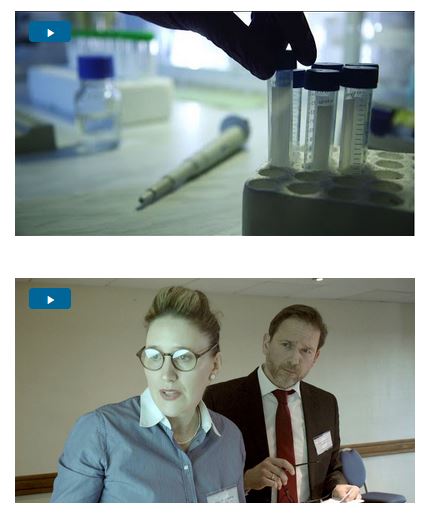Where does "good scientific practice" (GSP) come from, and why is it so important to safeguard it not only for all university staff but also for all students? How does "good scientific practice" (GSP) relate to "academic integrity" and "research ethics"? – The lecture gives an overview...
- of the basic rules of good scientific practice (such as ethically correct [indication of] authorship, citation rules, quality criteria for empirical work,, retention and documentation requirements, etc.)
- as well as of the various forms of scientific misconduct (such as plagiarism, contract cheating ("ghostwriting"), ghostcoding, messenger service cheating, exam with wrong identity, unethical authorship, assignment outsourcing, collusion, data manipulation, data fabrication, sabotage, doctoral placement, false statements in CVs, title fraud, false reputation damage, and others
- and the grey areas (the so-called Questionable Research Practices/QRPs such as p-Hacking or HARKing).
- The lecture also gives an overview of of the various forms of quality assurance of scientific work (such as courses oder course modules on GSP, legal governance, GSP guidelines, chartas, codes of conduct, written affirmations – affidavits or declarations on oath, signed form sheets, separation of supervision and evaluation, plagiarism software checks, use of stylometric software, evaluations, double blind peer review, open commentaries, Science Watch blogs and platforms, whistleblowers, open data, open access, ethics committees, good laboratory practice – GLP, ombudspersons for good scientific practice, institutions such as the Austrian Academy of Sciences, etc.)
- A focus is also on the possibilities for plagiarism software self-testing for students (for example with Scribbr or PlagScan).
The topics securing good scientific practice, scientific misconduct and the grey area of QRPs should at least be illuminated... 
- historically,
- legally, and
- ethically.
We will also ask ourselves how citation cartels, rope teams, bullying, job corruption and career obstruction could be classified.
Current discussions on academic hoaxes, fake science, predatory journals or replication crisis will enrich the lecture. Furthermore, each semester we will discuss a current example of scientific misconduct in the context of a short assessment. On both days, additional interactive elements such as live votings and multimedia components such as online courses, short films and podcasts will loosen up the course.
The focus on academic honesty in the context of a GSP lecture responds to the changing conditions for academic study, triggered above all by massification and digitization. Most recently, distance learning led to a quick transformation of universities.
This is one of the first interfaculty lectures of this kind in Austria, introduced in 2019.
Literature
Main document
TU Wien (Hg.) (2007): Code of Conduct – Regeln zur Sicherung guter wissenschaftlicher Praxis
Further literature (guidelines, websites etc.)
Akademien der Wissenschaften Schweiz (Hg.) (2021): Kodex zur wissenschaftlichen Integrität
All European Academies (ALLEA) (Hg.) (2017, revised version): The European Code of Conduct for Research Integrity
Arbeitsgemeinschaft "Gute wissenschaftliche Praxis im Wandel" (ARGE GWP) der Österreichischen Forschungsgemeinschaft (ÖFG) (Hg.) (2022): Website (with further hints)
Bundesinstitut für Bevölkerungsforschung (BiB) (Hg.) (o.J.): Qualitätssicherung
Bundesministerium für Bildung, Wissenschaft und Forschung (BMBWF) u.a. (Hg.) (2020): Praxisleitfaden für Integrität und Ethik in der Wissenschaft
Deutsche Forschungsgemeinschaft (DFG) (Hg.) (2013, zweite Auflage): Denkschrift „Sicherung guter wissenschaftlicher Praxis“, Wiley-VCH/DFG
Deutsche Forschungsgemeinschaft (DFG) (Hg.) (2019): Leitlinien zur Sicherung guter wissenschaftlicher Praxis – Kodex
European Science Foundation (ESF)/All European Academies (ALLEA) (Hg.) (2011): The European Code of Conduct for Research Integrity
Haslinger, Markus/Weber, Stefan (2020): Website des Arbeitsschwerpunkts "GWP – Gute wissenschaftliche Praxis" (with links to further guidelines)
Institut für Höhere Studien (IHS)/ Österreichisches Institut für Wirtschaftsforschung (WIFO) u.a. (Hg.) (2022, zweite Auflage): Memorandum of Understanding – Prinzipien der wissenschaftlichen Integrität für Studien der öffentlichen Auftragsforschung
Österreichische Agentur für wissenschaftliche Integrität (ÖAWI) (Hg.) (2015: Neugestaltung 2019): Richtlinien der Österreichischen Agentur für wissenschaftliche Integrität zur Guten Wissenschaftlichen Praxis
Österreichische Rektorenkonferenz (Hg.) (2002): Richtlinien der Österreichischen Rektorenkonferenz zur Sicherung einer guten wissenschaftlichen Praxis
Universität Innsbruck (Hg.) (2011): Richtlinie des Rektorats: Sicherung guter wissenschaftlicher Praxis an der Universität Innsbruck
World Conference on Research Integrity (Hg.) (2010): Singapore Statement on Research Integrity
Photo credits: Word cloud own creation S.W., 2019; screenshots from uploads on the TUWEL-course of the lecture, both screenshots (c) NDR, documentation series on fake science, 2018, https://bit.ly/2RDUSGf
Lecture via ZOOM
No exam-immanent course, therefore no attendance obligation for you! However, attendance at the live lectures is strongly recommended. The whole course will be available for re-listening/-viewing in the TU Vienna cloud after the lectures.
Case studies, software demonstrations, quality checks of concrete scientific theses of students, interactive live surveys with the live voting tool "Mentimeter", possibly students' own short lecture inputs. Supportive material will be available after the seminar in TUWEL.
TAKE HOME EXAM
Please download the exam questions and further files related to the exam from the TUWEL course of the concerned semester. Download is possible after start of the exam. Time span for answering the questions is three weeks.
The prerequisite for this is that you are registered for the course at all. Only then will you have access to the TUWEL course! (Attention: In TISS it is currently only possible to announce a single day, please ignore this. The exam lasts 21 days).
Unauthorised tools are: Lecture notes and summaries of other students as well as the involvement of other persons including the cooperation of students of the VO. Each submission must represent a recognisably 100% individual achievement.
All fees are checked for plagiarism with the Turnitin software and thus compared with each other for parallels!
Only the written examination is evaluated; however, students can improve their grades with their own input during the VO (possibly small case studies) and cooperation.